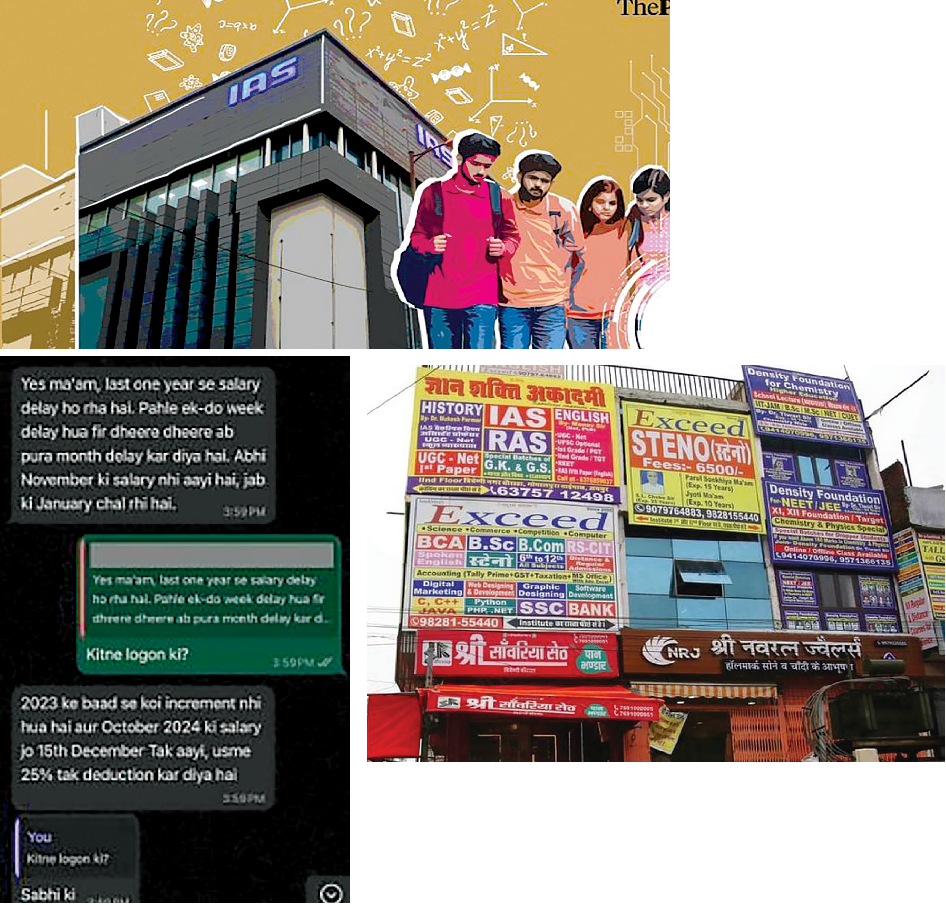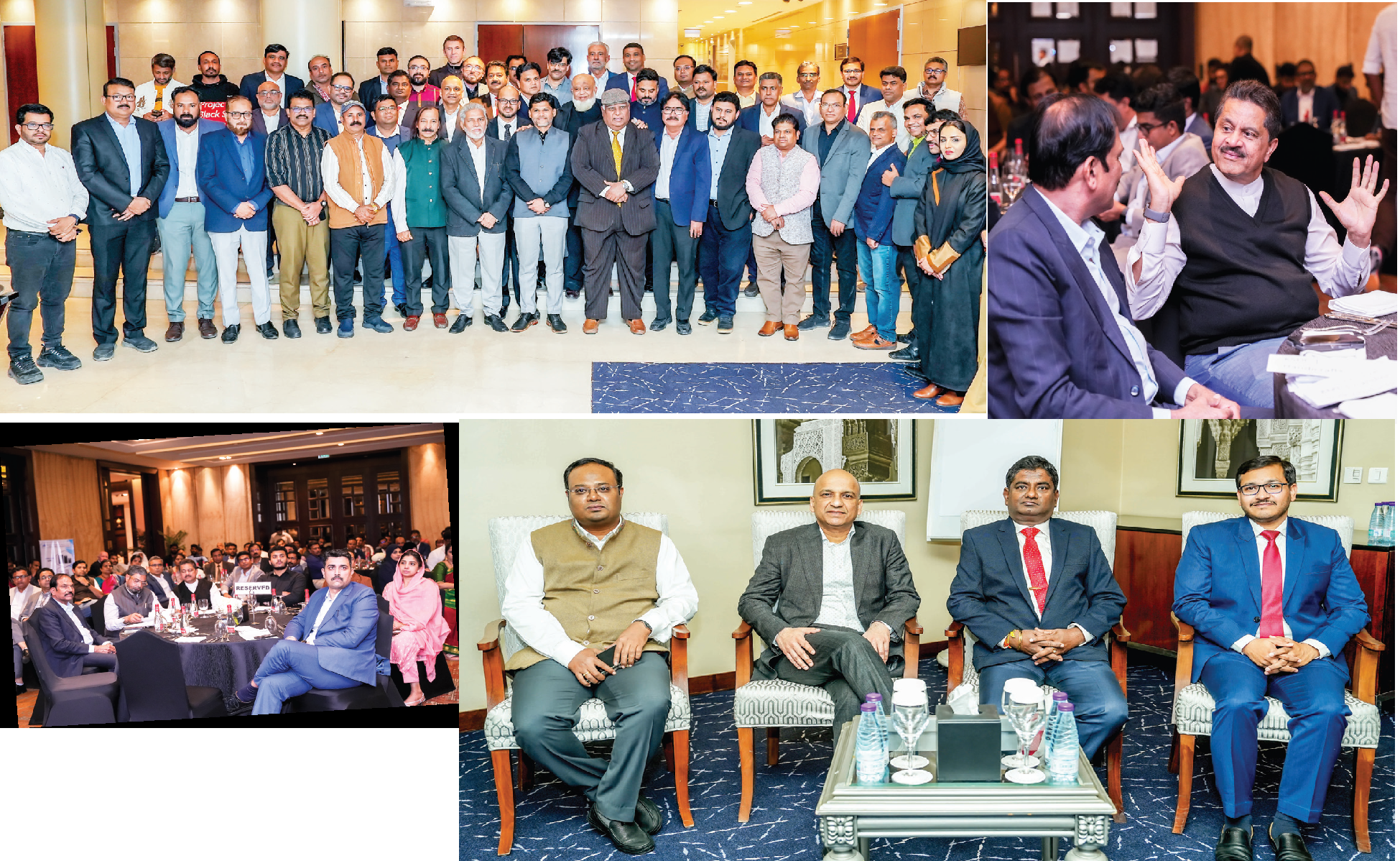
India’s coaching institutes are having a meltdown. Teachers, students dropping out
The turbulence isn’t confined to UPSC coaching institutes. FIITJEE has now closed 8 centres after hundreds of its teachers resigned over non-payment of salaries and pay cuts.
Nootan Sharma
The warning bells began to sound last year. First, salaries were delayed by a few days. Then came the pay cuts. And now, a 30-year-old team leader from Noida is still waiting for his November salary. He doesn’t work in the beleaguered tech sector but in a well-known UPSC coaching institute with centres in Karol Bagh and Mukherjee Nagar. “We’ve been experiencing delays in salary payments. On top of that, people are facing a 20 to 25% salary deduction as well,” said the executive, checking his phone for the familiar notification of his salary being credited. He received his October salary on December 7 but is still waiting for his November and December dues.
Delhi’s coaching hubs of Karol Bagh, Mukherjee Nagar, and Rajendra Nagar have not recovered from the deaths of three UPSC aspirants who drowned in the basement library of their coaching institute in July 2024. Crackdowns by the authorities, concerns about overcrowded classrooms, lack of infrastructure, high fees, and even quality of tutors are prompting parents and aspirants rethink enrolment in brick-and-mortar coaching institutes that were once the mainstay of the Rs. 3,000-crore coaching industry. The turbulence isn’t confined to UPSC coaching institutes. A top tutoring centre for engineering aspirants, FIITJEE, has now closed at least eight centres in North India after the mass resignation of hundreds of its teachers over non-payment of salaries and pay cuts. Centres in cities such as Meerut, Ghaziabad, Lucknow, and Varanasi in Uttar Pradesh, along with one centre each in Bhopal (Madhya Pradesh), Patna (Bihar), and Laxmi Nagar (Delhi), have shut down, leaving students and parents at a loss.
Parents have reached out to local police, demanding refunds and accountability from FIITJEE. While the police have assured them that their grievances will be addressed, the situation remains tense. “This issue has been ongoing for one year. In the previous year, we received our salaries only 4-5 times, that too with pay cuts. We are exploring our legal actions as of now. A few teachers have moved to different coaching institutes for survival,” said a teacher who used to teach in FIITJEE’s Gurgaon centre. Top UPSC coaching institutes admitted that they are experiencing a decline in admissions. “The industry is currently grappling with a significant slowdown. Informal discussions within the sector indicate that nearly all institutions have experienced a 40- 50% decline in admissions during this financial year,” said Vivek Tiwari, chief executive officer of Drishti IAS.
“Even if the institute is seeing losses, there should be proper communication with employees. The founder never spoke to us about these measurements and people are scared to ask as they can fire the person” said a Noidabased coaching centre employee. The institute relocated to Noida in August 2024, after the Municipal Corporation of Delhi (MCD) sealed its centre for running classes in a basement.
“Our primary focus has been to ensure that employees’ salaries are paid in full, without any cuts or delays,” Tiwari added. Drishti IAS, with its seven centres across India, can weather the tide. But others, like the institute the Noida team leader works for, have rolled out costcutting measures. These range from reducing salaries and freezing recruitment to changing incentive packages.
No communication: In the eight years since he joined the coaching institute, the Noida executive has risen the ranks to become a team lead with a monthly salary of a little over Rs. one lakh. There were regular increments, incentives, and promotions. Now, he relies on his friends to help him until his next paycheck. Every month without a salary brings new tensions. Initially, salaries were delayed by a week. A week soon turned into a fortnight, and now there are months-long stretches without pay. And while there has been a dip in enrollment for ‘offline’ classes, the employees pointed out that other verticals are thriving.
“There are test series, mentoring and crash courses, answer writing programs, and interview guidance programs that earn money for the institute. These are doing well” said the Noida team lead. He and his colleagues are worried about the lack of information from their employer. The coaching industry is unorganised, with no uniformity in salaries and the mushrooming of fly-by-night ‘institutes’. In the last few years, the Central Consumer Protection Authority has been issuing notices to multiple institutes for misadvertising and making false claims. After the deaths of aspirants in the basement library, the Delhi authorities have become more strict about permitting centres to run classrooms and even libraries. But no guidelines have been put in place for coaching institutes to formalise fees, study hours, the employment of teachers, and their salaries.
More often than not, coaching centres and institutes are run by one person, who decides the fees and salaries of teaching and non-teaching staff. Some institutes like Physics Wallah and Adda 24 have adopted a more corporate format, with decisions being made by a board—but they are not the norm. “In setups where all decisions are centralised under one person, such issues are bound to arise,” said a board member of a prominent coaching institute who did not want to be named.
 English daily published in Bengaluru & Doha
English daily published in Bengaluru & Doha





